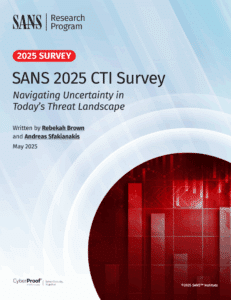Unveiling the Shield of Cybersecurity
In the ever-evolving landscape of digital threats, the importance of safeguarding organizational networks has never been more critical. Amidst this backdrop, Security Operations Center (SOC) Analysts emerge as the linchpins of modern cybersecurity strategies.
These dedicated professionals operate at the heart of the global security operations center, continuously monitoring, analyzing, and responding to cyber threats that loom over corporate assets and data. Their role transcends traditional IT functions, embedding deep within the operational fabric of managed security operations, and offering a dynamic shield against cyber adversaries. As organizations navigate the complexities of network security and data protection, SOC Analysts stand at the forefront, wielding advanced security tools and intelligence to preempt, identify, and neutralize cyber risks.
This piece delves into the critical functions and unparalleled contributions of SOC Analysts, illustrating their pivotal role in fortifying the cybersecurity posture of businesses across the globe. By understanding the essence of their mission, organizations can better appreciate the value brought by these guardians of cyber safety, ensuring a robust defense mechanism against the myriad of cyber threats in today’s digital age.
The Core of a Security Operations Center (SOC)
At the epicenter of an organization’s cybersecurity defense lies the Security Operations Center (SOC), a dedicated facility that houses an elite team of security experts, including the indispensable SOC Analysts. This hub is the brain of an organization’s security posture, where continuous vigilance is maintained over the network’s pulse to swiftly detect, analyze, and respond to cybersecurity threats.
Function and Significance: The SOC functions as the organizational nexus for all cybersecurity efforts. It is equipped with state-of-the-art technology and staffed by seasoned professionals tasked with monitoring the organization’s security infrastructure around the clock. From identifying suspicious activity to managing security incidents, the SOC is the first line of defense against cyber threats, ensuring the integrity, confidentiality, and availability of critical data.
The Role of SOC Analysts: Within this cybersecurity bastion, SOC Analysts play a pivotal role. Their responsibilities are multifaceted, extending from real-time threat detection to incident response and recovery. They are the sentinels, constantly on the lookout for anomalies within the organization’s networks and systems that could signify a breach or attack.
Global Security Operations Center: In an era where threats know no borders, the concept of a Global Security Operations Center (GSOC) has taken root. GSOCs extend the capabilities of traditional SOCs by leveraging global threat intelligence and providing support across different geographies, thus enhancing an organization’s ability to respond to incidents on a global scale.
Managed Security Operations: Recognizing the complexity and resource demands of maintaining an effective SOC, many organizations have turned to managed security operations. This approach allows businesses to outsource their cybersecurity operations to specialized providers. Managed SOCs offer a cost-effective solution for organizations seeking to enhance their security posture without the overhead of running an in-house SOC.
The SOC, with its team of dedicated SOC Analysts, is the cornerstone of any robust cybersecurity strategy. It embodies the organization’s proactive stance against cyber threats, employing a comprehensive, coordinated approach to ensure digital safety. As cyber threats continue to evolve in sophistication, the role of the SOC and its analysts will only grow in importance, making it an indispensable asset in the quest to secure our digital world.
The SOC Analyst: Cybersecurity’s Vigilant Guardian
In the intricate landscape of cybersecurity, SOC Analysts emerge as the vanguards of an organization’s defense mechanism against the ceaseless tide of cyber threats. Tasked with the critical mission of safeguarding an organization’s information assets, these professionals embody the essence of vigilance and precision in the digital era.
Defining the SOC Analyst: A SOC Analyst operates within the Security Operations Center, playing a crucial role in the detection, analysis, and response to cybersecurity incidents. Their day-to-day activities involve monitoring security systems for anomalies, investigating security breaches, and coordinating response strategies to mitigate threats. As the eyes and ears of the SOC, these analysts are pivotal in ensuring the swift identification of cyber threats, safeguarding the organization’s digital perimeter.
A Multidimensional Role: The responsibilities of a SOC Analyst span various dimensions of cybersecurity. From real-time analysis of security alerts to conducting in-depth investigations of potential security incidents, their role is integral to maintaining the organization’s cybersecurity posture. They leverage a wide array of security tools and technologies, including Security Information and Event Management (SIEM) systems, to monitor network traffic, identify vulnerabilities, and analyze patterns indicative of malicious activities.
Collaboration and Communication: The efficacy of a SOC Analyst extends beyond individual expertise, relying heavily on their ability to collaborate with other cybersecurity professionals and communicate findings effectively. Whether it’s working alongside network administrators to patch vulnerabilities or briefing management on security risks, their role necessitates a high degree of interpersonal communication and teamwork.
Continuous Learning and Adaptation: Given the dynamic nature of cyber threats, SOC Analysts must continually update their knowledge and skills. This involves staying abreast of the latest cybersecurity trends, understanding emerging threat vectors, and adapting to new security technologies and methodologies. The field demands a perpetual learner’s mindset, with analysts often pursuing certifications and specialized training to enhance their capabilities.
Tiered Structure for Escalation: SOC Analysts typically operate within a tiered structure, with responsibilities escalating from Tier 1 analysts, who handle initial threat detections and triage, to Tier 2 and Tier 3 analysts, who engage in more complex investigations and incident response activities. This hierarchical approach ensures that incidents are managed with the appropriate level of expertise, facilitating efficient and effective resolution.
In the grand tapestry of cybersecurity, SOC Analysts stand out as the vigilant guardians of the digital realm. Through their unwavering dedication to monitoring, analysis, and response, they play a pivotal role in protecting organizations from the specter of cyber threats. As cyber adversaries continue to evolve, the role of the SOC Analyst will remain critical in navigating the challenges of the digital age, ensuring the security and resilience of organizational networks in the face of an ever-changing threat landscape.
Building the Line of Defense: Skills and Qualifications
The domain of cybersecurity is a dynamic battlefield, where SOC Analysts are the frontline warriors safeguarding an organization’s digital assets against incessant threats. The complexity and sophistication of cyber threats necessitate a diverse set of skills and qualifications for those aspiring to embark on the path of a SOC Analyst. These professionals are not just technical experts; they are strategic thinkers, problem solvers, and vigilant guardians of cybersecurity.
Educational Foundation: A robust educational background forms the cornerstone for a career as a SOC Analyst. A bachelor’s degree in information technology, cybersecurity, computer science, or a related field is often a prerequisite. This foundational knowledge is crucial for understanding the intricacies of network architectures, operating systems, and cybersecurity principles.
Technical Proficiency: At the heart of a SOC Analyst’s skill set is a deep technical proficiency. Analysts must be adept at:
- Network Security: Understanding of network protocols, firewalls, VPNs, and encryption technologies.
- Security Tools and Technologies: Proficiency in using Security Information and Event Management (SIEM) systems, intrusion detection systems (IDS), and other cybersecurity tools to monitor networks and detect threats.
- Malware Analysis: Knowledge of malware types, attack vectors, and mitigation strategies is vital for identifying and neutralizing threats.
Analytical Skills: The ability to analyze vast amounts of data and discern patterns indicative of cyber threats is essential. SOC Analysts must possess strong analytical skills to identify anomalies within network traffic and system logs, which could signify potential security incidents.
Problem-Solving Abilities: Cybersecurity is a field defined by rapid change and unpredictability. SOC Analysts must have excellent problem-solving abilities to devise effective strategies for threat mitigation and incident response under pressure.
Communication and Collaboration: Effective communication is paramount in the SOC environment. Analysts must articulate technical information clearly to both technical and non-technical stakeholders. Collaboration with other cybersecurity team members, IT personnel, and management is critical for a unified security posture.
Continuous Learning: Given the ever-evolving nature of cyber threats, a commitment to continuous learning and professional development is non-negotiable. SOC Analysts often pursue professional certifications such as Certified Information Systems Security Professional (CISSP), Certified Ethical Hacker (CEH), or GIAC Certified Incident Handler (GCIH) to enhance their knowledge and stay abreast of the latest in cybersecurity trends and technologies.
Entry-Level Pathways: While a bachelor’s degree and technical proficiency are key, entry-level SOC Analyst positions often also emphasize the importance of internships or related experience in IT or cybersecurity roles. Hands-on experience is invaluable for understanding the real-world applications of cybersecurity principles and tools.
The amalgamation of these skills and qualifications equips SOC Analysts to construct and fortify the line of defense against cyber adversaries. As digital guardians, their role is critical in navigating the complexities of the cyber realm, ensuring the security and resilience of organizational networks against the myriad threats that lurk in the digital shadows.
Advanced Tools at Their Disposal
In the high-stakes realm of cybersecurity, SOC Analysts are akin to digital alchemists, transforming data into insights and threats into opportunities for strengthening defenses. Their arsenal? A sophisticated suite of tools and technologies designed to surveil, analyze, and counteract the myriad cyber threats that besiege modern organizations. These tools not only augment the analysts’ capabilities but also serve as extensions of their expertise, enabling them to protect their digital domains more effectively.
Security Information and Event Management (SIEM): The cornerstone of any SOC, SIEM systems aggregate and analyze log data from across an organization’s IT environment, providing a centralized view of security events. This powerful tool enables SOC Analysts to detect anomalies, track security incidents, and respond to threats in real-time. By correlating data from various sources, SIEM aids in identifying patterns that may indicate a potential security breach.
Intrusion Detection Systems (IDS) and Intrusion Prevention Systems (IPS): IDS and IPS are critical for monitoring network traffic for suspicious activity and known threats. While IDS alerts SOC Analysts to potential threats, allowing for a swift investigative response, IPS goes a step further by actively blocking detected threats, providing an additional layer of security.
Endpoint Detection and Response (EDR): EDR tools provide SOC Analysts with visibility into endpoint activities, detecting and responding to threats that bypass traditional security measures. By continuously monitoring endpoints for suspicious behavior, EDR enables analysts to quickly identify and isolate compromised devices, mitigating the risk of a broader security breach.
Vulnerability Management Tools: These tools scan the network for known vulnerabilities, such as unpatched software or insecure configurations, providing SOC Analysts with actionable intelligence. By prioritizing vulnerabilities based on their potential impact, analysts can focus their efforts on the most critical issues, ensuring that the organization’s defenses remain robust.
Threat Intelligence Platforms (TIP): TIPs aggregate and analyze data from multiple sources to provide SOC Analysts with insights into emerging threats. By understanding the tactics, techniques, and procedures (TTPs) used by cyber adversaries, analysts can better anticipate and counteract potential attacks.
Automation and Orchestration Tools: As the volume and complexity of cyber threats continue to grow, automation and orchestration tools have become indispensable. These tools automate repetitive tasks, allowing SOC Analysts to focus on more strategic activities, and orchestrate workflows for more efficient incident response.
Cyber Threat Hunting Tools: Beyond reactive defense mechanisms, SOC Analysts also proactively search for hidden threats within their organization’s IT environment. Cyber threat hunting tools enable analysts to sift through vast datasets, identify anomalies, and investigate potential security incidents before they escalate. Equipped with these advanced tools, security operations center analysts navigate the cyber battleground with precision and agility. These technologies not only enhance their ability to detect and respond to threats but also empower them to proactively fortify the organization’s security posture. In the ever-evolving landscape of cybersecurity, the synergy between skilled analysts and cutting-edge tools is the key to staying one step ahead of cyber adversaries.
SOC Security Services: A Comprehensive Approach to Cybersecurity
In the intricate web of modern cybersecurity, the Security Operations Center (SOC) stands as a beacon of vigilance and resilience, offering a comprehensive suite of services designed to counteract the multifaceted nature of cyber threats. The provision of SOC services represents a holistic approach to cybersecurity, encompassing not only the detection and response to incidents but also the strategic management of an organization’s security posture. Through a blend of expertise, technology, and process, SOC services offer a fortified defense mechanism that is both dynamic and robust.
Managed Security Operations: In an era where cyber threats evolve at a breakneck pace, many organizations opt for managed SOC services to bolster their cybersecurity defenses. Managed SOC providers bring to the table a wealth of experience, advanced technologies, and 24/7 monitoring capabilities. By outsourcing security operations, organizations can leverage the expertise of seasoned security professionals, ensuring comprehensive monitoring, swift incident response, and continuous security posture improvement.
Security Operations as a Service (SOCaaS): SOCaaS is an extension of managed SOC services, delivering the functionalities of a traditional SOC in a scalable, cloud-based model. This service model provides organizations with the flexibility to adapt to changing security needs without the significant upfront investment required to establish an in-house SOC. SOCaaS includes real-time monitoring, threat detection, incident response, and compliance management, offering a cost-effective solution for businesses seeking to enhance their cybersecurity capabilities.
Detection and Response: At the core of SOC services is the capability to detect and respond to cyber incidents promptly. Utilizing advanced tools such as EDR, and IDS/IPS, and SIEM, SOC Analysts monitor network traffic, endpoints, and system logs for signs of malicious activity. Upon detection of a potential threat, the SOC team swiftly initiates response protocols to mitigate the impact, containing the threat and initiating recovery processes to restore normal operations.
Vulnerability Management and Threat Intelligence: Proactive threat identification and mitigation are critical components of SOC services. Through continuous vulnerability assessments, SOC teams identify and prioritize security weaknesses, guiding remediation efforts to strengthen the organization’s defenses. Complemented by threat intelligence, SOC services stay ahead of emerging threats, adapting defensive strategies based on the latest information on cyber adversaries’ tactics, techniques, and procedures.
Compliance and Governance: In a regulatory landscape that demands stringent data protection and privacy measures, SOC services play a pivotal role in ensuring compliance with relevant standards and regulations. By implementing and monitoring security controls aligned with industry best practices, SOC teams help organizations meet their compliance obligations, reducing the risk of costly breaches and legal penalties.
Education and Awareness: Beyond the technical aspects of cybersecurity, SOC services encompass the promotion of security awareness within the organization. Through training programs and regular communications, SOC teams empower employees to recognize and respond to security threats, fostering a culture of cybersecurity awareness.
The comprehensive approach offered by SOC services is indispensable in the current cybersecurity landscape, where threats are both ubiquitous and constantly evolving. By integrating detection, response, intelligence, and governance, SOC services provide organizations with the resilience and agility needed to navigate the complexities of digital security, ensuring the protection of their most valuable assets in the face of relentless cyber threats.
The Future of SOC Analyst Roles in SOC for Cybersecurity
As the digital landscape continues to expand, the role of the SOC Analyst within the cybersecurity domain is poised for significant evolution. This transformation is driven by the rapid advancement of technology, the escalating complexity of cyber threats, and the growing demand for more sophisticated cybersecurity measures. The future of SOC Analyst roles will be marked by increased specialization, a deeper integration of artificial intelligence (AI) and machine learning (ML), and a greater emphasis on proactive threat hunting and strategic security planning.
Specialization and Advanced Expertise: The field of cybersecurity is branching into more specialized areas, requiring SOC Analysts to possess advanced expertise in specific domains. As organizations face diverse threats ranging from ransomware attacks to sophisticated state-sponsored cyber espionage, SOC Analysts will need to specialize in niche areas such as forensic analysis, threat intelligence, or cloud security. This specialization will enable analysts to provide more targeted and effective defense strategies against the unique threats their organizations face.
Integration of AI and ML: The integration of AI and ML technologies into SOC operations is transforming the way analysts detect and respond to threats. These technologies enhance the ability to analyze vast datasets, identify patterns, and predict potential security breaches with greater accuracy and speed. SOC Analysts will increasingly rely on AI-driven tools for real-time threat detection, automated incident response, and predictive analytics, allowing them to focus on more strategic, high-level tasks that require human intuition and decision-making.
Proactive Threat Hunting: The proactive identification of hidden threats before they manifest into full-blown attacks will become a core responsibility of SOC Analysts. This shift towards proactive threat hunting involves a more aggressive approach to security, where analysts actively seek out indicators of compromise within their organization’s networks. This role evolution demands a deep understanding of adversarial tactics, techniques, and procedures, as well as the ability to think like an attacker to uncover covert threats.
Strategic Security Planning: SOC Analysts will play a pivotal role in the strategic planning of an organization’s cybersecurity initiatives. Beyond their operational duties, analysts will be involved in developing long-term security strategies, advising on cybersecurity policies, and participating in the design of secure network architectures. This strategic dimension requires SOC Analysts to possess a broad understanding of business operations, risk management, and regulatory compliance, further emphasizing the need for continuous learning and professional development.
Collaboration Across Disciplines: The future will see SOC Analysts working more closely with other departments within the organization, such as IT, legal, and human resources, to ensure a cohesive cybersecurity posture. This interdisciplinary collaboration fosters a culture of security awareness across all levels of the organization and ensures that cybersecurity considerations are integrated into all aspects of business operations. The future of SOC Analyst roles in cybersecurity is dynamic and promising, reflecting the ongoing evolution of the cyber threat landscape and the continuous innovation in security technologies. As these professionals adapt to emerging challenges and harness the power of advanced tools and methodologies, their role will be increasingly central to the resilience and security of organizations in the digital age. With a forward-looking approach and a commitment to professional growth, SOC Analysts will continue to be invaluable assets in the quest to safeguard our digital world against the ever-evolving array of cyber threats.
Enhancing Cyber Resilience: SOC Analysts at the Forefront
In an age where cyber threats loom larger and more complex than ever before, SOC Analysts stand as critical guardians of organizational cybersecurity. Their role is not merely about responding to incidents but is increasingly focused on enhancing the cyber resilience of organizations. This shift towards a more holistic approach to cybersecurity emphasizes not only the protection of digital assets but also the capacity to withstand and rapidly recover from cyber incidents. As the digital frontier expands, the strategies and methodologies employed by SOC Analysts are evolving to meet these challenges head-on.
Adopting a Holistic Security Posture: SOC Analysts are instrumental in developing and maintaining a holistic security posture that encompasses all facets of an organization’s digital and physical operations. This comprehensive approach integrates cybersecurity with business continuity planning, ensuring that organizations can continue to operate effectively even in the face of a cyber incident. By aligning cybersecurity strategies with business objectives, SOC Analysts help to safeguard the organization’s critical assets while supporting operational resilience.
Emphasizing Cyber Hygiene and Awareness: One of the key strategies in enhancing cyber resilience is the promotion of cyber hygiene and security awareness throughout the organization. SOC Analysts play a pivotal role in educating employees about the importance of cybersecurity best practices, from password security to the recognition of phishing attempts. By fostering a culture of cybersecurity awareness, SOC Analysts help to mitigate the risk of human error, which remains one of the leading causes of security breaches.
Leveraging Advanced Predictive Analytics: The future of SOC operations is intricately tied to the advancement of predictive analytics. By harnessing the power of data analytics and machine learning, SOC Analysts can anticipate potential threats and vulnerabilities before they are exploited by adversaries. This proactive approach enables organizations to stay one step ahead of cyber threats, adapting their defenses in real-time to counter emerging risks.
Integrating Threat Intelligence for Informed Decision-Making: Effective cybersecurity is predicated on informed decision-making. SOC Analysts leverage threat intelligence to gain insights into the latest cyber threat trends and attacker methodologies. This intelligence-driven approach allows SOC Analysts to tailor their defense mechanisms to counter specific threats, enhancing the organization’s capacity to respond swiftly and effectively to cyber incidents.
Strengthening Incident Response and Recovery Capabilities: A core component of cyber resilience is the ability to respond to and recover from security incidents swiftly. SOC Analysts are at the forefront of refining incident response plans, ensuring that they are comprehensive, actionable, and regularly updated. Through simulation exercises and continuous improvement processes, SOC Analysts enhance the organization’s readiness to respond to cyber incidents, minimizing downtime and mitigating the impact on business operations. In the relentless battle against cyber threats, the role of SOC Analysts in enhancing cyber resilience is more critical than ever. Through a blend of technical expertise, strategic planning, and continuous improvement, SOC Analysts not only defend against immediate threats but also empower organizations to thrive in an increasingly digital world. As we look to the future, the resilience and adaptability fostered by SOC Analysts will be pivotal in navigating the complexities of the cybersecurity landscape, ensuring that organizations can face cyber challenges with confidence and strength.
Elevating Security Postures with Expert SOC Analysts
In the digital age, where cyber threats are both ubiquitous and evolving, the role of SOC Analysts transcends conventional boundaries, becoming a cornerstone of organizational resilience and security. Through their expertise, vigilance, and strategic insight, SOC Analysts play a pivotal role in not just mitigating threats but in architecting a cybersecurity framework that is robust, adaptive, and aligned with business objectives.
As organizations navigate the complexities of the digital landscape, the value of SOC Analysts in safeguarding digital assets and ensuring operational continuity cannot be overstated. The journey of SOC Analysts is one of constant evolution—adapting to new threats, leveraging cutting-edge technologies, and fostering a culture of security awareness across organizations. Their work ensures that businesses are not only protected against current threats but are also prepared to face future challenges with confidence.
The dynamic nature of cyber threats requires a proactive and predictive approach to cybersecurity, where SOC Analysts are not just responders but strategic defenders of the digital frontier. The future promises an increasing integration of AI and machine learning, further enhancing the capabilities of SOC Analysts to predict, prevent, and respond to cyber incidents.
As the cybersecurity landscape grows more complex, the role of SOC Analysts will become increasingly strategic, moving beyond the operational to influence organizational policy and culture. In conclusion, SOC Analysts are indispensable to the cybersecurity ecosystem, offering the expertise, insight, and dedication required to navigate the ever-changing cyber threat landscape. Their role is critical in enabling organizations to achieve a balance between operational efficiency and cybersecurity, ensuring not just the protection of digital assets but the resilience and success of businesses in the digital era.
As we look ahead, the expertise and adaptability of SOC Analysts will continue to be pivotal in fostering secure, resilient organizations capable of withstanding the cyber challenges of tomorrow.










